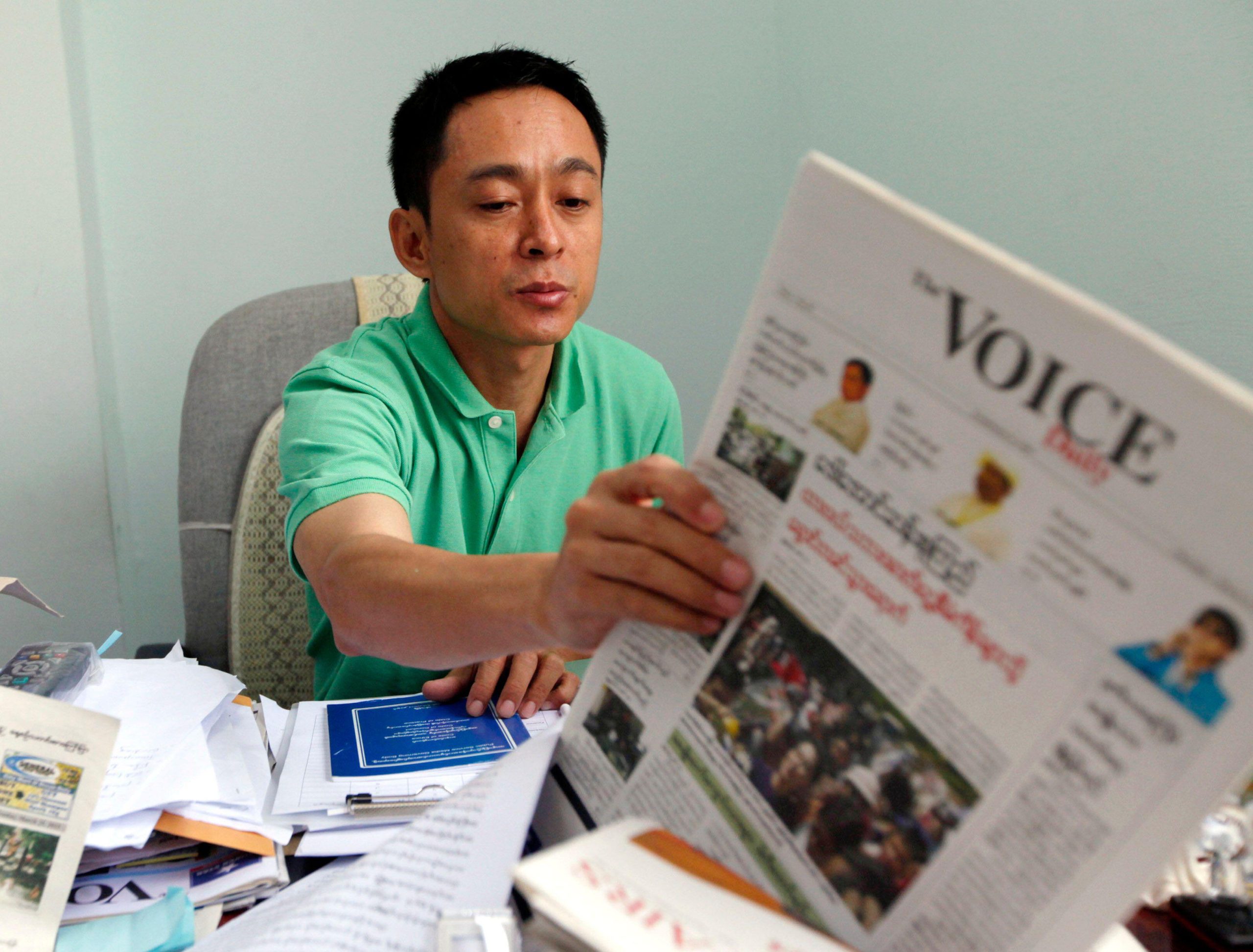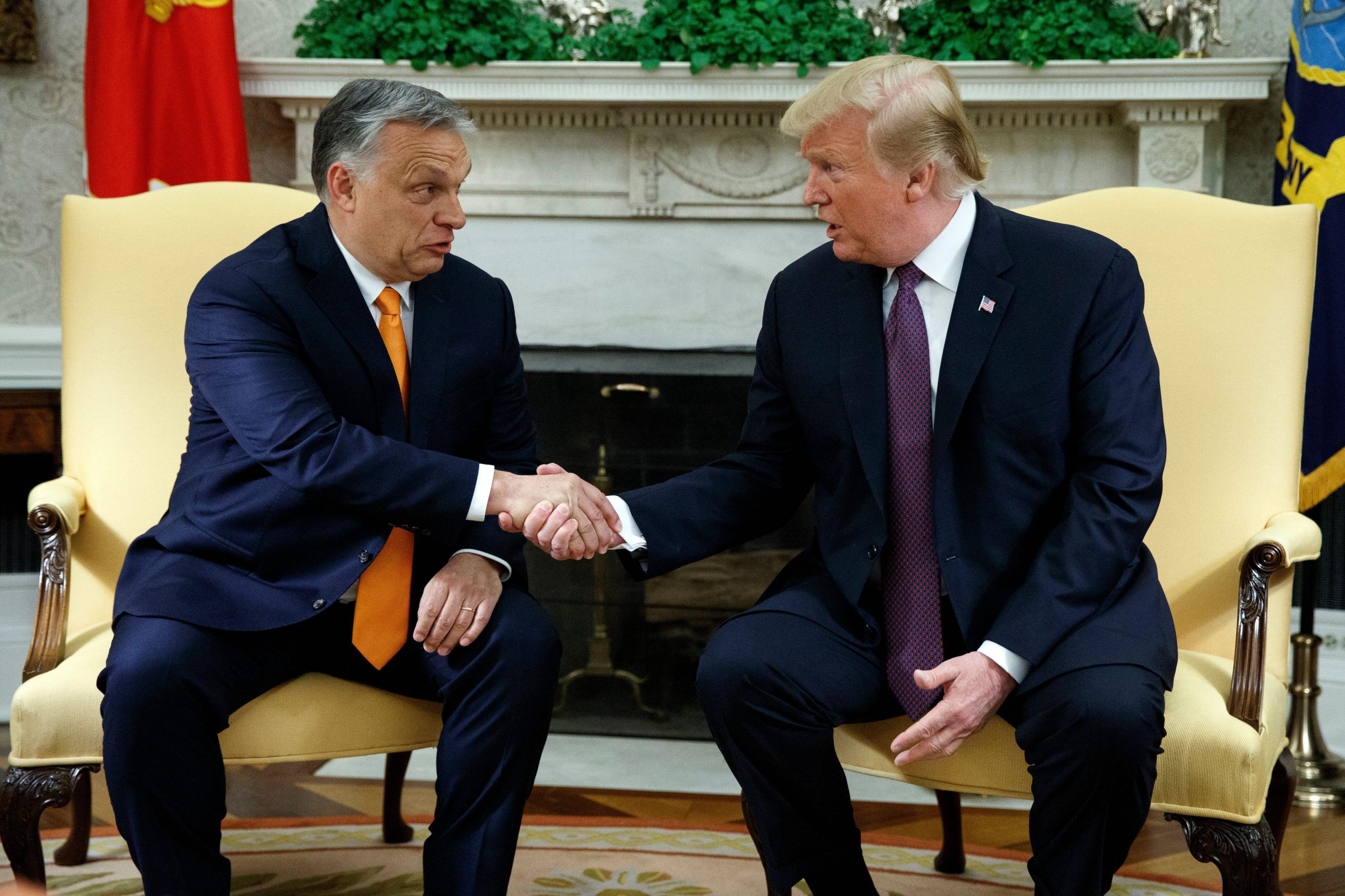This article first appeared in Volume 53, Issue 4 of our print edition of Index on Censorship, titled Unsung Heroes: How musicians are raising their voices against oppression. Read more about the issue here. The issue was published on 12 December 2024.
A black square was all it took. Veteran journalist Kyaw Min Swe was arrested by the Myanmar military junta in April 2023 after he blacked out his personal Facebook profile – a sign of despair at the bombing of Pazigyi, a village near his hometown in the Sagaing region, which killed more than 100 people including children.
Around 300 people had gathered for the opening of an office of the National Unity government in exile. Eyewitnesses reported that a fighter jet bombed the village before a helicopter fired on those escaping. It was one of the deadliest attacks on civilians since the military coup in 2021.
Kyaw, the former editor-in-chief of weekly newspaper Aasan (The Voice) and executive director of the Myanmar Journalism Institute, has been a journalist for more than 25 years. He had been detained before, but this time was different.
“On a popular Telegram account that monitors high-profile people like me, I was accused of supporting the People’s Defence Force [the PDF is the military wing of the exiled government] and opposing the military with that Facebook post,” he told Index. He was summoned to the military interrogation centre in Yangon to explain himself.
“I had nine days of torture – not physical, but mental: three interrogators, working in rotation, asking me the same questions and depriving me of sleep.
“They lied about arresting my reporters, pretending they had evidence of connections with the exiled government and the PDF, but they had nothing. I simply told them the truth: I’m a professional journalist, not pro-exiled government or anti-military, but I disagree with the coup.”
Later, he was bundled into a vehicle with a bag over his head.
“I was scared. This was different to my previous experiences,” said Kyaw, who was taken first to the police interrogation centre and then to Sanchaung Township police station, where he was charged under Section 505A of Myanmar’s Penal Code – used by the junta to target those seen to criticise the regime and carrying a maximum three-year prison sentence.
Insein in chains
After almost three months, including two spent in chains in the notorious Insein Prison, he was finally released – with an order to report weekly to police.
“From then on, I was monitored constantly,” he said. “The military actually offered me financial support, but they wanted to use me as propaganda and I knew that was professional suicide.”
While detained, Kyaw decided he and his family needed to leave Myanmar.
“It was no longer the right place for my kids,” he said.
He contacted a friend at Deutsche Welle, the German state broadcaster which part-funds the Myanmar Journalism Institute, and last October he fled Yangon under cover of darkness with his wife and two children.
The daring escape to Germany via Thailand included crossing rivers, trekking through jungles, climbing walls and sheltering in safe houses. Eight months later, with the help of the Exile Hub, an independent organisation based in Thailand, they finally found safety in Berlin in June 2024.
“For my kids it was like an adventure, but not for my wife, who spent seven months taking Xanax because she couldn’t sleep,” said Kyaw. “She was anxious every time she saw someone in a uniform. In Myanmar, she’d got used to hiding my laptop in the washing machine every time the doorbell rang.”
Myanmar’s censors
Over the course of his career in Myanmar, Kyaw has seen censorship fluctuate between brief periods of hope and progress to crushing repression.
Before 2011, the military junta imposed strict censorship on the press. Independent media was non-existent, with most newspapers being government-owned or strictly controlled, focusing on state propaganda. Kyaw’s media house, for example, was owned by the son of the military intelligence chief.
Journalists had to submit their work to the Press Scrutiny and Registration Division (PSRD) before publication, and any critical or sensitive content – particularly related to the military, politics or ethnic conflicts – was censored. Kyaw said his magazine was suspended six times, sometimes for infringements as minor as running adverts that mentioned neighbouring Thailand.
With the shift to a quasi-civilian government under president Thein Sein in 2011, Myanmar experienced a brief period of media liberalisation. As secretary at Myanmar’s Press Council, Kyaw helped draft a media law to protect journalists. The PSRD was abolished, private newspapers were allowed to publish daily, and journalists, for the first time, began to report on previously forbidden subjects.
Yet they still faced threats and prosecution. Kyaw was sued for defamation by the Ministry of Mines in 2012 for publishing a story about alleged misuse of public funds, based on a report from the parliamentary watchdog.
“The ministry demanded a front-page apology, but the parliament report was so clear, we politely declined,” he said.
The case dragged on for months and Kyaw faced dozens of court appearances before it was dropped, following pressure from human rights NGOs and a ministerial reshuffle. Kyaw took this as a sign of progress.
A false dawn
Aung San Suu Kyi’s National League for Democracy (NLD) came to power in 2016, but the military retained significant power and media freedom deteriorated again.
“We expected a lot from the NLD,” recalled Kyaw. “We self-censored and hesitated to criticise them because people loved them so much. We didn’t want to be labelled pro-military.”
Several high-profile cases of media repression occurred, notably the jailing of Reuters journalists Wa Lone and Kyaw Soe Oo for reporting military atrocities against the Rohingya.
In 2017, Kyaw was arrested in his newsroom along with columnist Ko Kyaw Zwa Naing after a military official complained about a satirical article published in response to a film commemorating Armed Forces Day. Charges against Ko Kyaw Zwa Naing were dropped, but Kyaw Min Swe remained in Insein Prison for two months, on trial for “online defamation’’ under the 2013 Telecommunications Law.
“They treated us decently because the international community was watching,” Kyaw recalled. “The military, and even the Press Council, wanted me to apologise, but I said, ‘I’m sorry, this is satire, a form of art. If I apologise, my career is gone’.”
The military coup of 2021 dramatically reversed any media freedoms that had been gained. The military seized control of all state media, revoking the licences of independent news outlets such as Mizzima, Myanmar Now and DVB.
“Every journalist was watched and monitored,” Kyaw said. “Many journalists were arrested, others were beaten at demonstrations on the street.”
Draconian laws were passed, including Section 505(A) of the Penal Code which criminalises “causing fear, spreading false news, or agitating against government employees”. Kyaw’s newspaper was forced to cease publishing when businesses switched their advertising to state-owned media.
Myanmar has become the world’s second biggest jailer of journalists, second only to China, according to Reporters Without Borders (RSF).
Several “exiled media” outlets such as The Irrawaddy have relocated to Thailand and rely on citizen journalists to provide content. Kyaw said he hoped bodies such as the Myanmar Journalism Institute might act as platforms to attract funding for exiled media, as well as for journalists still working inside the country for regional or ethnic media houses. But this can also be problematic.
“Some [exiled] Myanmar media report only what’s happening in the war, and only when it’s good news for the PDF and the exiled government. But Myanmar people have a right to know true information, free of bias, about the war, the economy or even natural disasters that are happening,” Kyaw said.
“Without that reporting, our people cannot prepare for the future.”
This article was updated on 6 February 2025 to clarify that Exile Hub is an independent organisation based in Thailand.






